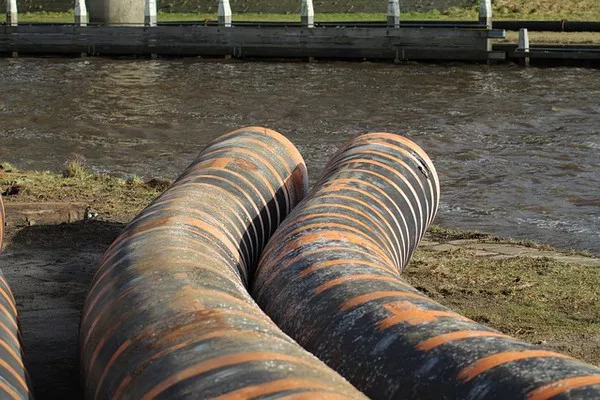Treating wastewater is a crucial aspect of environmental management that plays a pivotal role in safeguarding water resources and public health. As urbanization and industrialization continue to escalate, the generation of wastewater has become a significant challenge. Addressing this challenge effectively requires the implementation of wastewater treatment processes to mitigate the environmental impact and ensure the sustainable use of water resources.
Understanding Wastewater:
Wastewater is the collective term for water that has been used and contaminated during various human activities, including domestic, industrial, and agricultural processes. It contains a diverse array of impurities, ranging from organic and inorganic compounds to pathogens and suspended solids. If left untreated, wastewater poses a serious threat to ecosystems and human well-being, as it can contaminate water bodies and compromise the quality of drinking water sources.
The Importance of Wastewater Treatment:
Treating wastewater is imperative for several reasons, primarily centered around environmental protection, public health, and sustainable water management. By removing pollutants from wastewater, treatment processes prevent the contamination of natural water bodies, protecting aquatic ecosystems and preserving biodiversity. Additionally, treated wastewater can be safely discharged or reused for non-potable purposes, reducing the demand on freshwater resources.
Key Components of Wastewater Treatment:
Wastewater treatment involves a series of physical, chemical, and biological processes aimed at removing contaminants and impurities. The treatment process typically consists of three main stages: primary treatment, secondary treatment, and tertiary treatment.
Primary Treatment:
During primary treatment, physical processes are employed to remove large solids and grit from the wastewater. This is often done through the use of screens, sedimentation tanks, and clarifiers. The primary treatment helps reduce the overall pollutant load in the wastewater, preparing it for further treatment.
Secondary Treatment:
Secondary treatment focuses on the removal of dissolved and suspended organic matter through biological processes. Microorganisms are introduced into the wastewater to break down organic pollutants. Common methods include activated sludge processes, trickling filters, and rotating biological contactors. This stage significantly improves the water quality, making it suitable for discharge into water bodies or further treatment.
Tertiary Treatment:
Tertiary treatment is the final step in the wastewater treatment process and involves the removal of remaining contaminants to meet specific water quality standards. Advanced treatment methods, such as filtration, chemical coagulation, and disinfection, are employed during this stage. Tertiary treatment is particularly crucial when treated wastewater is intended for reuse in activities like irrigation or industrial processes.
Challenges in Wastewater Treatment:
Despite the advancements in wastewater treatment technologies, several challenges persist in achieving comprehensive and sustainable wastewater management.
Emerging Contaminants:
The presence of emerging contaminants, such as pharmaceuticals, personal care products, and microplastics, poses a new challenge for wastewater treatment. Conventional treatment methods may not effectively remove these substances, requiring continuous research and development of advanced treatment technologies.
Infrastructure and Funding:
In many regions, inadequate wastewater treatment infrastructure and limited financial resources hinder the effective implementation of treatment processes. Governments and stakeholders must invest in upgrading and expanding existing facilities to meet the growing demands of urbanization.
Climate Change Impacts:
Climate change can exacerbate the challenges associated with wastewater treatment. Increased frequency of extreme weather events, such as floods or droughts, can disrupt treatment facilities and affect the overall efficiency of the treatment process.
The Role of Innovation in Wastewater Treatment:
Innovation plays a crucial role in addressing the challenges of wastewater treatment. Research and development efforts are focused on creating more efficient and sustainable treatment technologies. Some notable innovations include:
Advanced Membrane Technologies:
Membrane filtration technologies, such as reverse osmosis and ultrafiltration, are gaining popularity for their ability to remove contaminants at the molecular level. These advanced membranes enhance the efficiency of wastewater treatment, especially in situations where conventional methods may fall short.
Green Infrastructure:
Green infrastructure solutions, such as constructed wetlands and vegetative swales, mimic natural processes to treat wastewater. These eco-friendly alternatives not only effectively remove pollutants but also contribute to habitat restoration and biodiversity conservation.
Resource Recovery:
Innovative approaches to wastewater treatment include the concept of resource recovery, where valuable resources such as nutrients, energy, and water are reclaimed from the wastewater. This not only improves the sustainability of the treatment process but also creates opportunities for economic benefits.
See Also What Is Sludge In Wastewater Treatment? A Comprehensive Overview
Conclusion:
Treating wastewater is a multifaceted process that goes beyond the simple removal of impurities. It is a critical component of environmental stewardship, ensuring the responsible use of water resources and protecting ecosystems and public health. As we face increasing challenges posed by urbanization, industrialization, and climate change, continuous innovation and investment in wastewater treatment technologies are essential for building a sustainable and resilient future. By addressing the challenges head-on and embracing innovative solutions, we can pave the way for a more efficient, effective, and environmentally friendly wastewater treatment paradigm.

